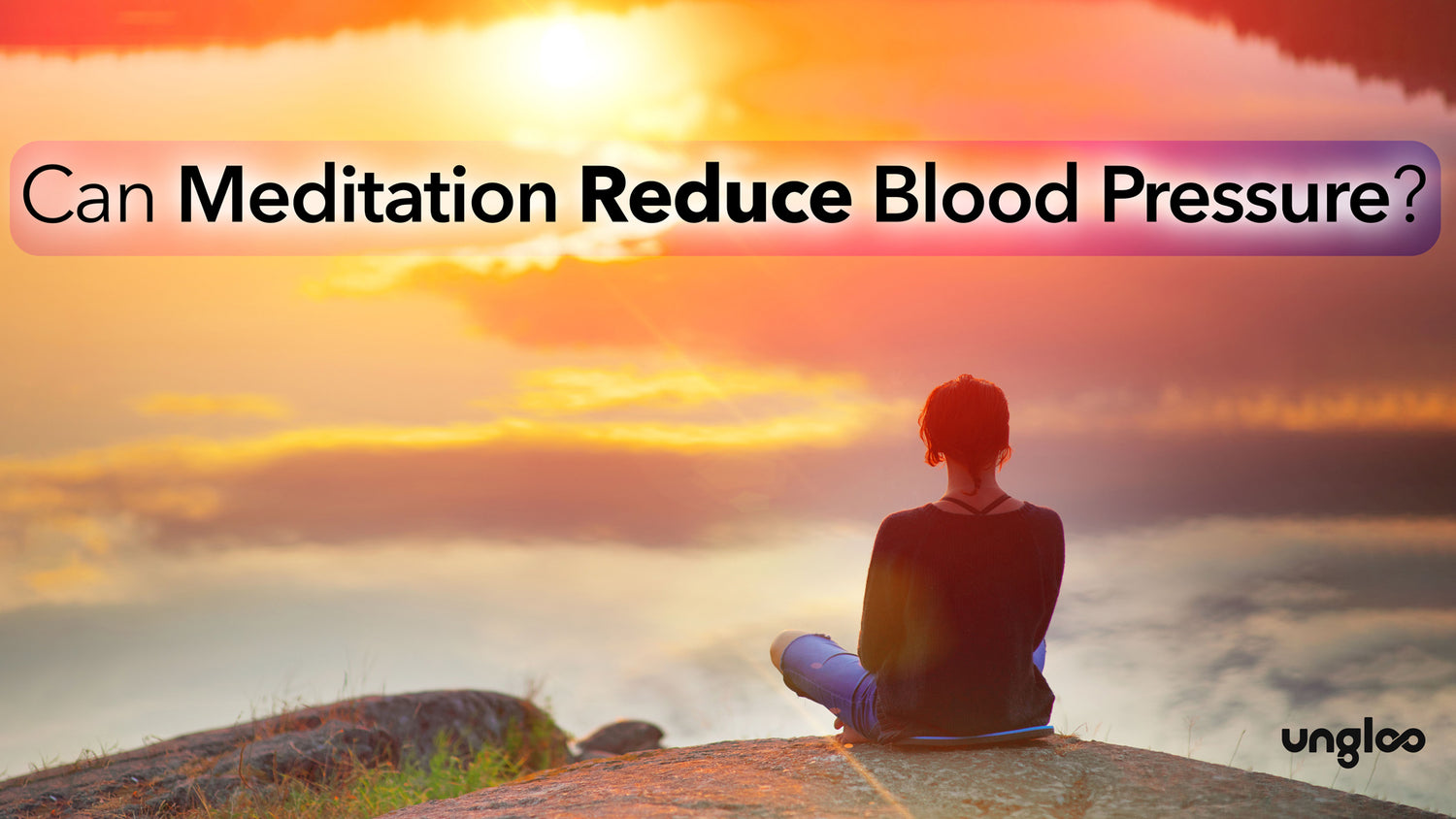How Meditation Can Reduce Your Blood Pressure
Meditating has many health benefits that will improve your quality of life. Anyone interested in meditation, self-help, and mindfulness is likely curious about these benefits of meditation. While the mental and emotional benefits of meditating are often boasted about, there are numerous physical benefits to meditation as well.
For example, meditation can reduce your blood pressure in significant ways. Meditation has many physical benefits, just as crucial as its mental benefits. Let’s dive in deeper to how meditation can reduce your blood pressure, how long you should meditate to lower your blood pressure, and what to know about the physical benefits of meditating.
Can Meditation Reduce Blood Pressure?
Can meditation reduce your blood pressure and improve my physical health? The short answer is yes–different types of meditation can help reduce your blood pressure through mindful exercises.
Meditation reduces blood pressure because it helps individuals calm the activity in their sympathetic nervous system. This contributes to narrowing blood vessels in response to perceived stressors. Additionally, meditation can help increase activity in your parasympathetic nervous system. This helps widen your blood vessels and improves blood pressure.
If you wonder how meditation can reduce your blood pressure, the answer ultimately boils down to how balanced your body’s compounds are before meditating. Meditation can help increase nitric oxide levels in your body. Nitric oxide helps widen your blood vessels making it easier for your blood to flow naturally. Lower nitric oxide levels will lead to narrower blood vessels that worsen your blood pressure.
Are There Any Mental or Physical Benefits of Meditation?
There are numerous physical benefits to meditation that you may not be aware of. Meditation is also a great tool to improve your mental health. One of the main reasons why people meditate is to reduce their stress levels.
Meditation helps reduce stress and blood pressure levels because it targets cortisol. Cortisol is a hormone that produces the harmful effects of high-stress levels. For instance, cortisol contributes to releasing inflammatory chemicals referred to as cytokines. Meditation helps target physical stress to improve the quality of your sleep, lower depression, and decrease anxiety levels. If practiced correctly, meditation can reduce inflammation caused by high-stress levels while reducing symptoms of high stress, such as irritable bowel syndrome, PTSD, and fibromyalgia. When you meditate to reduce stress levels, a positive side effect is lower your blood pressure as well.
Additional physical benefits to meditation often go overlooked by people who consider it a part of their daily routine. Meditation serves numerous purposes for improving overall health, managing depression and anxiety, developing newfound self-awareness, and improving attention span.
Damage Caused by Chronic Stress Levels
It’s difficult to pinpoint why meditation effectively reduces blood pressure, but it is likely related to how meditation targets chronic stress. Chronic stress is often caused by “background worry,” which leads to higher anxiety levels and, consequently, blood pressure.
Background worry is your subconscious anxiety that runs in the back of your mind, such as frequent worries about things outside your control. You might worry about your future, what has happened in the past, or what other people think of you. This constant worry triggers your fight-or-flight mode and releases cortisol. Cortisol contributes to chronic stress and can potentially cause serious health issues–including high blood pressure.
Meditation is ideal for people experiencing chronic stress, as it targets your fight-or-flight response and addresses other physical symptoms caused by your stress levels. Among these symptoms is higher blood pressure. When you meditate to control stress, you inadvertently lower your blood pressure and combat serious health issues down the line.
How Long Should You Meditate to Lower Blood Pressure?
Meditation can help lower your blood pressure if it is a routine practice. However, it’s important to note that meditations often vary in length. This makes it challenging for some people to determine the appropriate amount of time to meditate.
This confusion begs the question: how long should you meditate to lower blood pressure? The length of each meditation session depends on how long you’ve been meditating. Ideally, you will get to a point where you can meditate twice daily for longer sessions without getting distracted. When you first start meditating, you might want to start with shorter sessions of around five minutes twice daily.
Once familiar with your routine, you can start meditating for more extended periods. Studies generally suggest that the ideal time for meditation is around 15 minutes.
Dr. Herbert Benson of the Benson-Henry Institute for Mind Body Medicine developed a type of practice combining techniques from transcendental and mindfulness meditations. With this practice, Benson recommends that individuals meditate for 10-20 minutes twice daily.
Other meditation experts recommend using guided meditations for 20 minutes at least once daily. However, generally speaking, the recommended length of meditation is twice daily, 15 minutes per session. If you struggle to focus for this length of time, start with shorter sessions and build your way up over a few weeks.
Start Meditating Comfortably
Meditation is perfect for you if you struggle with high blood pressure and chronic stress. The seemingly endless physical and mental benefits of meditation make it essential to managing your daily life and approaching stressful situations mindfully. However, one issue people face when they first start meditating is finding a way to remain comfortable throughout each session.
If you’ve looked into meditation before, you’ve likely seen that many require sitting up straight in specific positions, which can be uncomfortable for newbies. Those worrying about remaining comfortable don’t have to worry any longer because meditation experts from Ungloo offer products to combat the uncomfortable sitting positions of many meditations.
Ungloo’s products include:
- A comfortable, portable meditation chair.
- Support blocks.
- Covers for your wedges and floor pads.
- A complete, portable meditation kit to meditate wherever you go.
If you are seeking new ways to reduce blood pressure and meditate comfortably, Ungloo has everything you need to make this a reality. These tools can put your body in a supportive position so that you can meditate without stress or pain.
Meditation Can Reduce Blood Pressure
It is no wonder that meditation is gaining traction and popularity. There are simply too many evidenced based benefits showing how meditation can improve your life. Developing a daily meditation practice, ideally of 15 min in length, can bring added wellness to your life. If you or someone you know struggles with high blood give meditation a try. Through meditation you will see a decrease of physical and mental stress bringing the added benefit of lower blood pressure.



